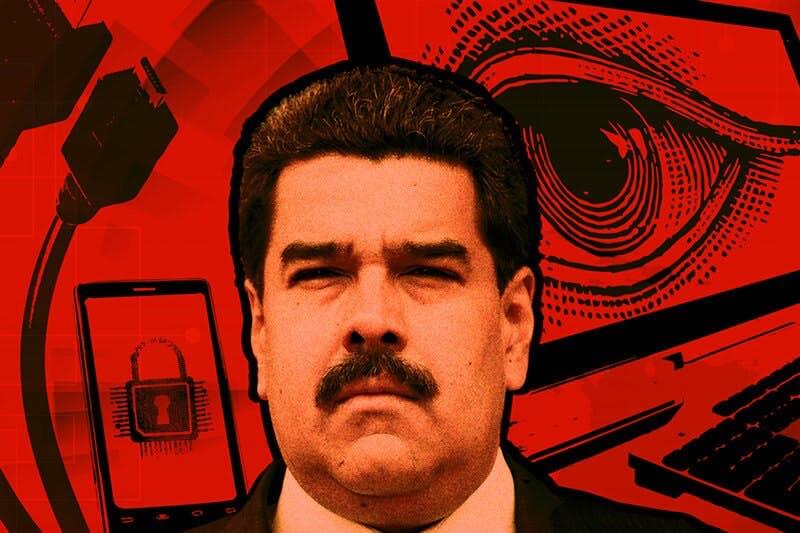NEW YORK – A recent journalistic investigation revealed that a group of intelligence agents from the Strategic Center for the Security and Protection of the Homeland (CESPPA), acting under direct instructions from President Nicolás Maduro, has unlawfully wiretapped phone conversations, and hacked text messages and email communications of prominent opposition figures such as Henrique Capriles, María Corina Machado, Henry Ramos Allup, and Julio Borges.
“This new exposé comes as no surprise from a regime that decades ago merged its intelligence services with that of Cuba — the Western Hemisphere’s only totalitarian country — which set up its repressive intelligence apparatus with help from the Stasi,” said Thor Halvorssen, president of HRF. “These practices need to stop, although there is little hope of this actually happening given that Maduro and his cronies have long abandoned any consideration for the rule of law,” he added.
According to an independent investigation published last week by Vértice, an online news website led by Emmy Award-winning investigative journalist Casto Ocando, “the Venezuelan government surveils and stores the communications of hundreds of opposition politicians, journalists, and activists and their relatives with the help of… officers from the Army, Navy, Air Force, National Guard, and the Marine Guard.” These officers, the report adds, “received special training in cyber-surveillance technologies from Russian, Chinese, and Cuban experts, and operate under the authority of General Gustavo González López, current Minister of Interior and one of the officers sanctioned last year by Washington who was accused of perpetrating serious human rights violations in Venezuela.”
In some cases, the information illegally obtained by CESPPA — videos and phone call recordings — is “made public through official channels, as in the talk shows hosted by [government officials], such as Diosdado Cabello’s weekly broadcast in the state-run Venezolana de Television (VTV).” The whole operation, the report concludes, is run “under the direct instructions of President Maduro.” According to Vértice, only the first part of the report has been made available to the public, with parts two to five expected to be published soon.
Vértice’s investigation is the latest example of a series of reports exposing a pattern of cyber-attacks by state-sponsored hackers in the region. Last year, an independent investigation revealed that Venezuela’s National Telecommunications Commission provided the country’s National Intelligence Services with numerous intelligence reports that led to the arbitrary arrests and the imprisonment of eight Twitter users. Later that year, HRF denounced the disinformation campaigns, death threats, and malware and phishing attacks presumably sponsored by the governments of Ecuador, Venezuela, Argentina, and Brazil. Early this year, HRF denounced the multiple denial-of-service (DDoS) attacks on Fundamedios, Ecuador’s most prominent free press organization, presumably sponsored by the government of President Rafael Correa.
“The Venezuelan regime’s interference with the private communications of several members of the democratic opposition is arbitrary, unlawful, and violates Article 17 of the International Covenant on Civil and Political Rights, ratified by Venezuela in 1978,” said Javier El-Hage, chief legal officer of HRF. “While today there is no independent judiciary that can provide an effective remedy to aggrieved Venezuelans, they will be able to use these investigations under a future democratic government to bring the perpetrators to justice,” he added.
Human Rights Foundation (HRF) is a nonpartisan nonprofit organization that promotes and protects human rights globally, with a focus on closed societies. HRF’s International Council includes human rights advocates Garry Kasparov, George Ayittey, Palden Gyatso, Mutabar Tadjibaeva, Elie Wiesel, and Harry Wu.
Contact: Noemi Gonzalo-Bilbao, (212) 246-8486, noemi@humanrightsfdn.wpengine.com
